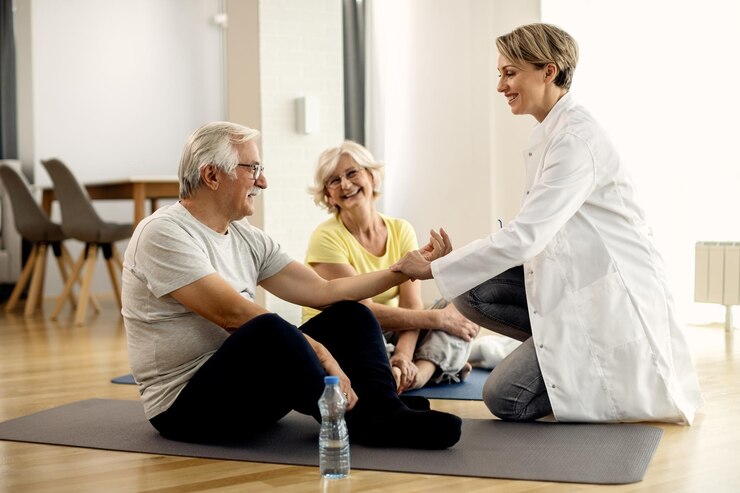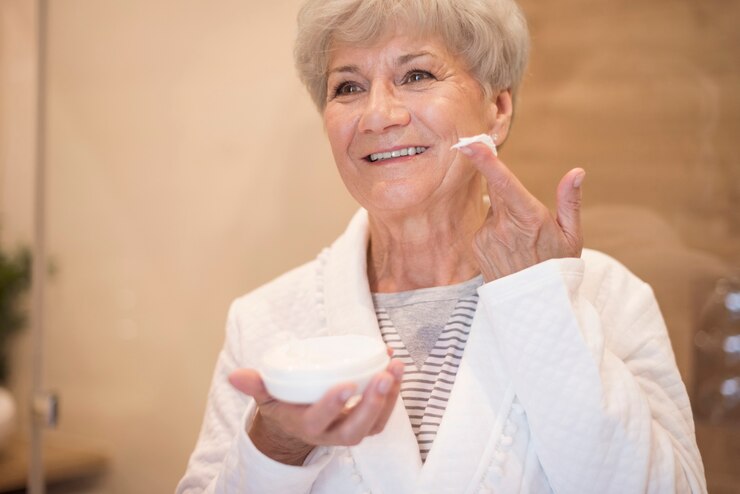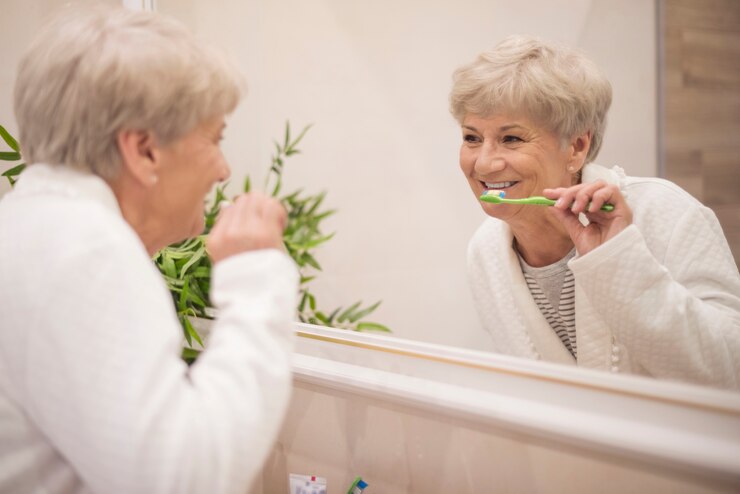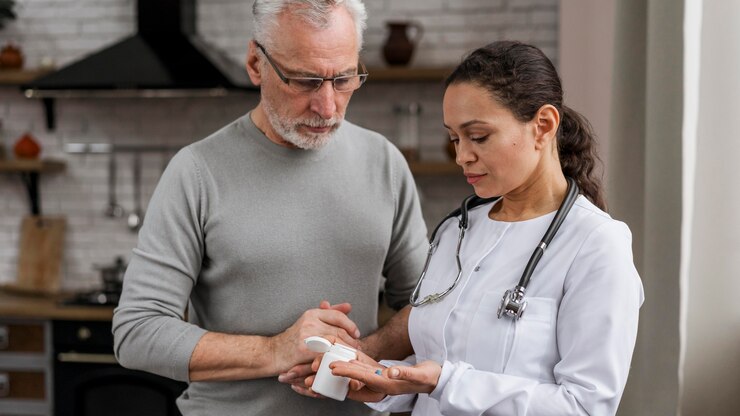Discussing Body Care for Seniors

Maintaining a healthy and vibrant body is essential at every stage of life, but body care becomes even more crucial as we age. Proper body care can significantly impact our overall well-being, mobility, and quality of life. For seniors, taking a proactive approach to body care can help prevent health issues, enhance physical function, and promote a positive and active lifestyle. Here’s a comprehensive guide to body care for seniors, covering essential aspects from nutrition to exercise and personal hygiene.
1. Nutrition and Hydration

A balanced diet is foundational to good health and well-being. As we age, our nutritional needs change, and focusing on a diet that supports our body’s evolving requirements becomes increasingly important.
Nutrition Tips for Seniors:
- Eat a Variety of Foods: Incorporate a mix of fruits, vegetables, whole grains, lean proteins, and healthy fats into your meals to ensure you get a range of essential nutrients.
- Focus on Protein: Protein is crucial for maintaining muscle mass and strength. Include sources like lean meats, fish, eggs, dairy products, beans, and legumes in your diet.
- Prioritize Calcium and Vitamin D: These nutrients are important for bone health. Sources of calcium include dairy products, leafy greens, and fortified foods, while vitamin D can be obtained from sunlight, fatty fish, and fortified products.
- Watch Portion Sizes: As metabolism slows with age, it’s important to manage portion sizes to maintain a healthy weight and avoid overeating.
- Stay Hydrated: Drinking enough water is vital for overall health. Aim for at least eight glasses of water daily, and adjust based on your activity level and climate.
2. Exercise and Physical Activity

Regular physical activity is key to maintaining strength, flexibility, and overall health. Exercise can help manage weight, improve cardiovascular health, and enhance mental well-being.
Exercise Tips for Seniors:
- Incorporate a Variety of Activities: Aim for a mix of aerobic exercises (like walking or swimming), strength training (using light weights or resistance bands), and flexibility exercises (such as yoga or stretching).
- Start Slowly and Progress Gradually: If you’re new to exercise or returning after a break, start with low-impact activities and gradually increase intensity as you build strength and stamina.
- Focus on Balance and Coordination: Activities like tai chi or balance exercises can help improve coordination and prevent falls, which is crucial for maintaining independence.
- Consult with a Healthcare Provider: Before starting any new exercise program, especially if you have existing health conditions, consult with your doctor to ensure the activities are safe and appropriate for you.
3. Personal Hygiene and Skin Care

Good personal hygiene and skin care are vital for comfort and health. As skin becomes thinner and less elastic with age, it requires more attention to keep it healthy and prevent issues.
Skin Care Tips for Seniors:
- Moisturize Regularly: Use a gentle, hydrating moisturizer to keep skin soft and prevent dryness. Apply after bathing or washing your hands to lock in moisture.
- Use Mild Soaps: Opt for mild, fragrance-free soaps and cleansers less likely to irritate sensitive skin.
- Protect from Sun Exposure: UV rays can still impact your skin even if you’re not spending much time outdoors. Use sunscreen with SPF 30 or higher and wear protective clothing when outdoors.
- Check Your Skin Regularly: Check your skin for any changes or unusual spots. Report any concerns to your healthcare provider promptly.
4. Dental and Oral Health

Maintaining good oral health is essential for overall well-being and can impact your eating and speaking ability.
Oral Health Tips for Seniors:
- Brush and Floss Daily: Brush your teeth twice daily with fluoride toothpaste and floss daily to prevent tooth decay and gum disease.
- Regular Dental Visits: Schedule regular check-ups and cleanings with your dentist to catch any issues early and maintain good oral health.
- Stay Hydrated: Adequate hydration helps keep your mouth moist and reduces the risk of dry mouth, which can lead to oral health problems.
5. Mental and Emotional Well-being

Body care isn’t just about physical health but also mental and emotional well-being. Keeping your mind engaged and maintaining a positive outlook is crucial for overall quality of life.
Mental and Emotional Health Tips for Seniors:
- Stay Socially Active: Engage with friends, family, and community groups to maintain social connections and prevent feelings of isolation.
- Pursue Hobbies and Interests: Continue to engage in activities you enjoy, whether it’s reading, gardening, or crafting. Hobbies can provide a sense of purpose and satisfaction.
- Practice Stress Management: Incorporate stress-reducing practices like meditation, deep breathing exercises, or gentle relaxation techniques into your daily routine.
- Seek Professional Help if Needed: If you’re feeling overwhelmed or struggling with mental health issues, don’t hesitate to seek support from a mental health professional.
6. Regular Health Check-ups

Routine health check-ups for seniors are essential for monitoring and managing chronic conditions and catching potential health issues early. Regular visits to your healthcare provider can help you stay on top of your health.
Health Check-up Tips for Seniors:
- Schedule Regular Appointments: Keep up with routine check-ups, screenings, and vaccinations as your healthcare provider recommends.
- Monitor Chronic Conditions: If you have chronic conditions like diabetes, hypertension, or arthritis, follow your treatment plan and attend regular follow-up appointments.
- Stay Informed: Keep up-to-date with your health status and discuss any new symptoms or concerns with your doctor.
Conclusion

Body care is essential for maintaining a high quality of life as we age. Seniors can enhance their overall health and vitality by focusing on nutrition, exercise, personal hygiene, oral health, mental well-being, and regular health check-ups. Taking proactive steps in these areas helps ensure that you look your best and feel your best. Embrace these practices to support a healthy, active, and fulfilling life at any age!





